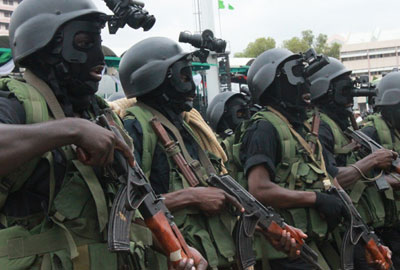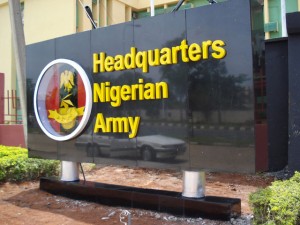Many Nigerians were startled with the rude and crude statement by Senator John McCain of the United States that – “We shouldn’t have waited for a practically non-existing government to give us the go ahead before mounting a humanitarian effort to rescue the (Chibok) girls”. Many would wonder what has happened to our sovereignty that we could be spoken to in such a manner. Two things have happened to the concept of sovereignty that has turned it on its head. The first was in 1789 when sovereignty was shifted from the sovereign, hitherto the king, to the people defined as citizens. S
ince then, sovereignty was understood as the possession of absolute power by the people and governments exercised the power on behalf of the people. Over the last two decades, the concept of sovereignty has been further modified by the doctrine of the Responsibility to Protect R2P. According to the doctrine, all governments have the responsibility to protect their citizens from mass atrocities, genocide and crimes against humanity and if they do not, the international community has the responsibility to use force, with or without the consent of the government in question, to save citizens. The world has changed and the issue of the Chibok girls is finally making it clear to the Nigerian State and its armed forces that they must protect citizens or someone else will do it.
Last week, there have been a lot of discussions in which senior United States military and civilian officials have questioned the capacity of the Nigerian military, even with foreign assistance, to rescue the Chibok schoolgirls abducted over a month ago. The discussion in Congress was that the Nigerian security forces have been so diminished in capability that they are currently “afraid to even engage” Boko Haram. According to Alice Friend, the Pentagon’s principal director for African affairs, ”we’re now looking at a military force that’s, quite frankly, becoming afraid to even engage.” To justify his statement, he contended that: “The Nigerian military has the same challenges with corruption that every other institution in Nigeria does. Much of the funding that goes to the Nigerian military is skimmed off the top, if you will.”
In their testimonies before the U.S. Senate Foreign Relations Committee last Thursday. Other senior officials including Chuck Hagel, Defence Secretary; Robert Jackson, Acting Assistant Secretary of State for African Affairs; and Earl Gast, United States Agency for International Development Assistant Administrator for Africa, also gave a troubling evaluation of the Nigerian government’s tactics against Boko Haram, and the military’s refusal to up its games and improve on its human rights record in the fight against a five-year brutal insurgency launched by the sect.
I raise this issue because its important for our government and our security agencies to realize that in today’s world, if you do not solve your problems, others will do it for you and they will do it in ways that suit their own interest. What the world is telling us to our face today is exactly what Governor Kashim Shettima told us on 17th February that our military lacks the equipment and motivation to fight and defeat Boko Haram. The presidency and the military high command were livid with anger over the statement and castigated him for encouraging the enemy and subverting the interests of the country. They forgot one thing, the enemy is in the field fighting, killing, maiming and abducting Nigerian citizens and they know what resistance they are getting from our armed forces. They don’t need an external source to tell them the quantum of assets available to our armed forces and their level of preparedness.
For us civilians, we have heard so many negative reports about the current state of our armed forces but all the reports were dismissed as fictive by the military high command. The truth however has a way of imposing itself and the incident in Maimalari barracks last week following the killing of 12 soldiers by terrorists was a sad statement for all of us Nigerians. Soldiers started shooting to express their dissatisfaction with their inferior level of equipment and alleged theft of their allowances and the General Officer Commanding the 7th Division, Major-General Ahmadu Mohammed had to be posted out. Our armed forces had never had such negative press since the establishment of the Hausa Constabulary in 1879.
The fact of the matter is that we need a good, well-armed military machine that can defend citizens and protect their human rights. As Nigerians, we need to rally round our army and defend their interests so that they can defend us. However, we can only do so on the basis of speaking truth to them and their speaking truth to us. Cover up simply does not work in this day and age of information over load. If the armed forces for example starts dealing with the bad eggs within them, Nigerians will notice and support their reform efforts. The cancer of corruption must be addressed as part of the strategy of rebuilding our armed forces to command the respect they had in the past.
As a nation, we must all be afraid of a return to Hobbes state of nature in which “life is solitary, poor, nasty, brutish and short” as there is a war of all against all. I say this because of the praises I hear about the people of Kalabalge this past week. They were said to have been attacked by Boko Haram terrorists but that they were ready with spiritual and physical weapons, which they used to kill over 200 insurgents. It will be terrible if every community in Nigeria will need to arm itself to defend their lives and property because the armed forces are unable to do so. We need to rebuild our armed forces so that they can defend us.
As President Jonathan admitted in Paris, we have had an on-going war in which terrorists have been killing and maiming our people. We tried to cover up the facts for years hoping the story will go away. It did not go away because when trained and well-armed people are killing with success and impunity, they will continue. It was the #BringBackOurGirls Movement that brought world attention to the Nigerian crisis. With the cat out of the bag, our President was forced to appeal to the world to help.
When I read what the Americans are saying, its clear that they may help but they will certainly not solve our problems. We have to do it ourselves. It is for this reason that we Nigerians need to openly discuss our problems, which the world knows about anyway, and work towards solving them. The first step is accelerating the supply of arms, equipment and training for our armed forces so that they can rediscover their role as a proud and able defender of the Nigerian people. Our new counter-insurgency strategy is right in saying force enough cannot solve the problem and we need to couple force with a soft approach. The soft approach on its own also cannot solve the problem if we do not have the forces to fight.


